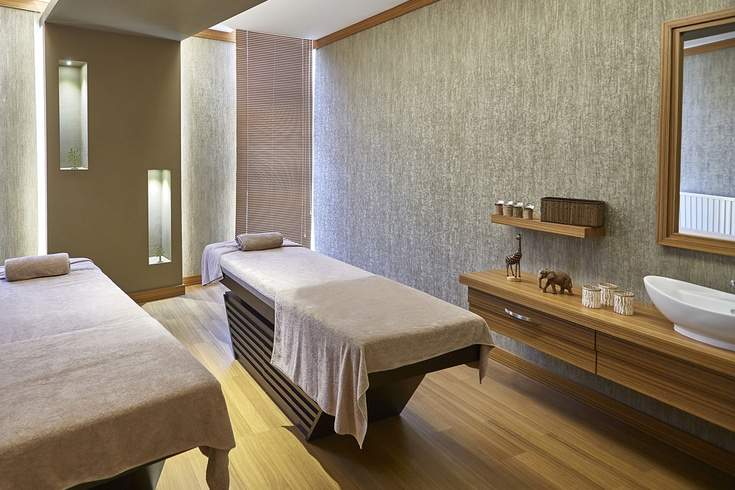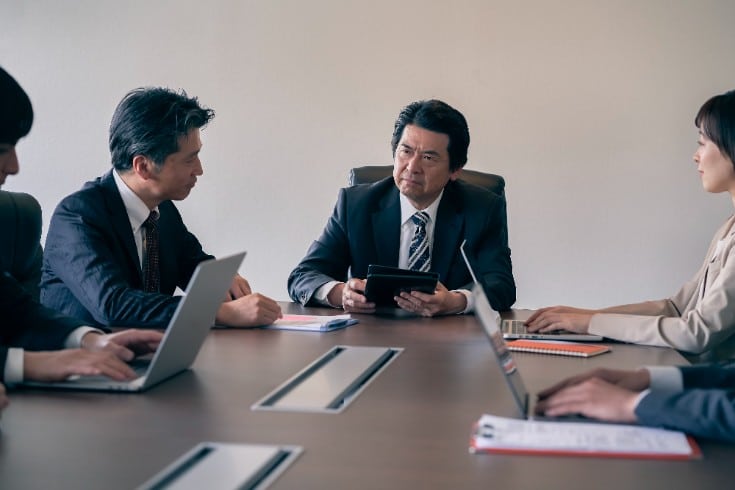What Beauty Salons Need to Know About Advertising Regulations Under the Pharmaceuticals and Medical Devices Act

Advertising plays a crucial role in attracting customers to beauty salons. As a salon owner, you would naturally want to highlight the unique features of your salon in your advertisements.
However, advertising for beauty salons is regulated by numerous laws, including the Japanese Pharmaceuticals and Medical Devices Act. To create legal and trustworthy advertisements, it is essential to have a correct understanding of these regulations.
In this article, we will provide a detailed explanation of the advertising expressions that beauty salons should be cautious about.
What is the Pharmaceuticals and Medical Devices Act?
The Pharmaceuticals and Medical Devices Act, from a health and hygiene perspective, is a law that establishes necessary regulations for pharmaceuticals, medical devices, and the like. Its formal name is “The Act on Securing Quality, Efficacy and Safety of Products Including Pharmaceuticals and Medical Devices”.
The Pharmaceuticals and Medical Devices Act sets various regulations at each stage such as development, production, management, sales, display, and advertising for pharmaceuticals and the like.
Advertising Regulations under the Pharmaceuticals and Medical Devices Act that Beauty Salons Should Be Aware Of
The Japanese Pharmaceuticals and Medical Devices Act (PMD Act) regulates “pharmaceuticals and medical devices,” and does not directly regulate the advertising of beauty salons themselves. However, through other laws such as the Act against Unjustifiable Premiums and Misleading Representations, regulations in line with the PMD Act may be applied. Also, when selling cosmetics and other products at a beauty salon, the PMD Act will be directly applied to each product.
The PMD Act stipulates advertising regulations for pharmaceuticals and medical devices in Articles 66 to 68. Among these, the prohibition of false and exaggerated advertising (Article 66, Paragraph 1 of the PMD Act) and the prohibition of advertising unapproved pharmaceuticals and medical devices (Article 68 of the PMD Act) are particularly important.
Prohibition of False and Exaggerated Advertising (Article 66, Paragraph 1 of the PMD Act)
Article 66, Paragraph 1 of the PMD Act prohibits false and exaggerated advertising regarding the name, manufacturing method, efficacy, effect, or performance of pharmaceuticals and medical devices. It is not permissible to include false facts or use exaggerated expressions for cosmetics and medical devices.
The criteria for determining “false” and “exaggerated” are indicated in the Ministry of Health, Labor and Welfare’s “Standards for Proper Advertising of Pharmaceuticals and Medical Devices” and “Explanation and Points to aware on the Standards for Proper Advertising of Pharmaceuticals and Medical Devices”. Among these, more specific criteria for the efficacy and effects of cosmetics are indicated in the Ministry of Health, Labor and Welfare’s notification in 2011 (Heisei 23) titled “Revision of the Scope of Efficacy of Cosmetics”.
For example, the following expressions for cosmetics may potentially violate Article 66, Paragraph 1 of the PMD Act:
- Cure ○○
- Regenerates ○○
- Improves skin quality with anti-aging care
- Power derived from cells
Prohibition of Advertising Unapproved Pharmaceuticals and Medical Devices (Article 68 of the PMD Act)
Article 68 of the PMD Act prohibits advertising unapproved pharmaceuticals, medical devices, and regenerative medicine products. If the equipment used or sold at a beauty salon falls under the category of medical devices, it is prohibited to advertise this equipment unless it is approved.
What is important about Article 68 of the PMD Act is that there are cases where the equipment used, which is originally just a beauty device, is considered a medical device when considering the content of the display or advertisement, and violates Article 68 of the PMD Act.
Also, as mentioned later, regulations other than the PMD Act will apply to medical devices.
Therefore, when using equipment at a beauty salon, it is extremely important to confirm whether it is a beauty device or a medical device.
Differences between Beauty Devices and Medical Devices under the Japanese Pharmaceutical and Medical Device Act
So, how are beauty devices and medical devices distinguished? In fact, it is difficult to draw a clear line between these two, and professional judgment is required.
Medical devices are defined in Article 2, Paragraph 4 of the Japanese Pharmaceutical and Medical Device Act as follows:
Article 2, Paragraph 4 of the Japanese Pharmaceutical and Medical Device Act
In this Act, “medical devices” refer to machinery, equipment, etc. (excluding regenerative medicine products) that are intended to be used for the diagnosis, treatment, or prevention of diseases in humans or animals, or to affect the structure or function of the body of humans or animals, as specified by Cabinet Order.
On the other hand, there is no legal definition for beauty devices. They can be referred to as devices related to beauty that are not medical devices.
What’s important is that whether a device is considered a medical device is determined by its “intended use”. In other words, even if the device does not actually have a therapeutic effect, if it is judged to be intended for treatment, it can be considered a medical device.
In determining the intended use of a device, various circumstances are considered, and it is not uniformly determined. However, one of the considerations is the presence or absence of claims of efficacy. That is, if a device claims to have a medical effect, it may be considered a medical device, regardless of what effect it actually has.
For example, if a facial beauty device is advertised as having effects such as “tightening the face line, caring for pores, preventing acne”, it may be judged to be a medical device, even though it does not have a medical effect.
If a device used in an esthetic salon is considered a medical device, performing a procedure using the device may be considered a medical act and may violate Article 17 of the Japanese Medical Practitioners Act.
Also, even if a device does not inherently have a medical effect, if it claims to have a medical effect, it may violate the Act against Unjustifiable Premiums and Misleading Representations (mentioned later) by causing a significant misunderstanding about the content of the procedure.
Furthermore, if you sell the device, unless the device is approved, it may violate Article 68 of the Japanese Pharmaceutical and Medical Device Act. Depending on the content of the advertisement, it may also violate Article 66 of the Act.
Note that the Japanese Pharmaceutical and Medical Device Act is not the only law that regulates the advertising of esthetic salons. There are other laws that must be observed. Below, we introduce the Act against Unjustifiable Premiums and Misleading Representations and the Japanese Medical Practitioners Act.
Regulation of Advertising Expressions in Esthetics under the Japanese Act against Unjustifiable Premiums and Misleading Representations
The Japanese Act against Unjustifiable Premiums and Misleading Representations (Act against Unjustifiable Gifts and Misrepresentation) is a law that aims to protect an environment where consumers can independently and rationally choose products and services by regulating unfair representations that deceive the quality and trading conditions of products and services.
The Act against Unjustifiable Premiums and Misleading Representations prohibits two types of unfair representations: superior misrepresentation and advantageous misrepresentation (Article 5 of the Act against Unjustifiable Premiums and Misleading Representations). If these representations are made, there is a possibility of being sanctioned for violation of the Act against Unjustifiable Premiums and Misleading Representations, such as orders for measures, fines, and injunction requests.
Below, we will confirm the two unfair representation regulations with specific examples.
Superior Misrepresentation
Article 5, Paragraph 1 of the Act against Unjustifiable Premiums and Misleading Representations prohibits the following representations (prohibition of superior misrepresentation).
Regarding the quality of products and services, to the general consumer,
- Those that indicate that they are significantly superior to the actual ones
- Those that indicate that they are significantly superior to those related to competing businesses, contrary to the facts
It prohibits representations that are likely to unfairly attract customers and hinder the independent and rational selection by general consumers.
Specifically, the following cases are considered superior misrepresentation.
- Despite actually doing appropriate exercise and dieting in parallel with going to the esthetic salon, advertising testimonial-type advertisements such as “I lost 10 kilos just by going to the esthetic salon!”
- Despite the fact that there is only one person who lost 10 kilos, using expressions such as “Esthetics that lose 10 kilos”, as if anyone who receives the treatment will lose 10 kilos
- Despite using a general method for treatment, displaying “By our unique method”
- Despite the fact that other stores also use the same equipment, displaying as if it is the only salon in Japan where you can receive treatment using that equipment
- Despite making an inappropriate comparison by quantifying the number of visitors in a different way from other stores, displaying as if “The most chosen in the ○○ area”
In addition, the business operator must submit documents that provide a reasonable basis for the representation at the request of the Commissioner of the Consumer Affairs Agency. If these documents are not submitted or if the submitted documents are not recognized as providing a reasonable basis, they may be considered unfair representations.
For example, the following highest-grade expressions may not be able to show a reasonable basis and may be considered superior misrepresentation.
- Highest quality
- Japan’s best
- World’s first
- Expressions of the fastest such as “You will become a small face in no time!” and “Immediate effect!”
Advantageous Misrepresentation
Article 5, Paragraph 2 of the Act against Unjustifiable Premiums and Misleading Representations prohibits the following representations (prohibition of advantageous misrepresentation).
Regarding the trading conditions such as the price of products and services,
- Those that are misunderstood by the general consumer as being significantly advantageous to the trading partner than the actual ones
- Those that are misunderstood by the general consumer as being significantly advantageous to the trading partner than those related to competing businesses
It prohibits representations that are likely to unfairly attract customers and hinder the independent and rational selection by general consumers.
Specifically, the following expressions may be considered advantageous misrepresentation.
- Despite actually comparing prices excluding other stores’ services, displaying “We are the cheapest!”
- While displaying “Only now, the first time is 5,000 yen!”, actually always 5,000 yen
- Despite being a service that cannot be received without additional charges, displaying as if the service can be received by paying only the basic fee
Regulation of Advertising Expressions in Esthetics under the Japanese Medical Practitioners Act
The Japanese Medical Practitioners Act is a law that stipulates the duties, licenses, and operations of physicians. Although esthetic salons are not beauty clinics where doctors perform treatments, they may be subject to the regulations of the Medical Practitioners Act.
Article 17 of the Japanese Medical Practitioners Act stipulates that “no one other than a physician may practice medicine.” Therefore, estheticians, who are not doctors, are not allowed to perform medical procedures.
As for advertising regulations, they are not explicitly stated in the Medical Practitioners Act. However, advertisements that could be mistaken for medical procedures are considered to be in violation of the Act against Unjustifiable Premiums and Misleading Representations (Japanese Premiums and Representations Act), as they can significantly mislead consumers about the treatment content, given that medical procedures are prohibited in esthetic salons.
Therefore, aside from theoretical discussions, it is illegal and not permissible for esthetic salons to use advertising expressions that could be mistaken for medical procedures.
For example, the following expressions could potentially be illegal as they could be mistaken for medical procedures:
- Pelvic correction
- Effective for cancer prevention
Summary: If You’re Unsure About Advertising Expressions for Beauty Salons, Consult a Lawyer
We have looked at the advertising expressions that should be noted in beauty salons. Various laws, including the Japanese Pharmaceutical and Medical Device Act, regulate the advertisements of beauty salons. Furthermore, whether each expression is legally permissible is determined on a case-by-case basis, making it a highly specialized field.
Legal checks and suggestions for rewriting expressions in beauty salon advertisements under the Japanese Pharmaceutical and Medical Device Act and other laws are highly specialized areas. Monolith Law Firm has formed a Pharmaceutical and Medical Device Act legal team, which handles article checks for a variety of products, from supplements to pharmaceuticals.
Introduction to Our Firm’s Measures
Monolith Law Office is a legal office with extensive experience in both IT, particularly the internet, and law. We provide services such as legal checks of articles and landing pages, creation of guidelines, and sampling checks for various entities including media operators, review site operators, advertising agencies, direct-to-consumer (D2C) businesses such as supplements, cosmetic manufacturers, clinics, and application service provider (ASP) businesses.
Category: General Corporate





















